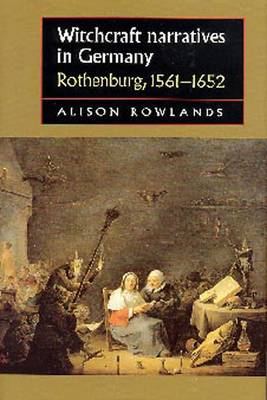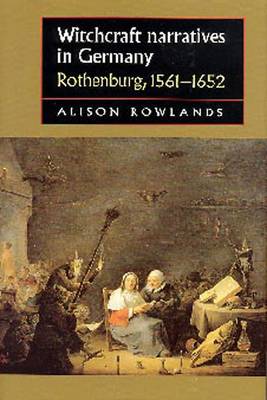
- Afhalen na 1 uur in een winkel met voorraad
- Gratis thuislevering in België vanaf € 30
- Ruim aanbod met 7 miljoen producten
- Afhalen na 1 uur in een winkel met voorraad
- Gratis thuislevering in België vanaf € 30
- Ruim aanbod met 7 miljoen producten
Zoeken
Omschrijving
Witchcraft narratives in Germany explains why witch-trials failed to gain momentum and escalate into 'witch-crazes' in certain parts of early modern Europe.
Centred on the German city of Rothenburg ob der Tauber and its rural hinterland, the study draws on the city's rich records to uncover the social and psychological tensions underlying witchcraft accusations and confessions. Remarkably, Rothenburg ob der Tauber saw just one execution for witchcraft between 1561 and 1652. This local pattern provides a vital counterpoint to prevailing historical narratives of widespread persecution, highlighting the 'relative failure' of witch-hunts in parts of Germany and questioning the assumption that mass trials were the early modern norm.Specificaties
Betrokkenen
- Auteur(s):
- Uitgeverij:
Inhoud
- Aantal bladzijden:
- 256
- Taal:
- Engels
- Reeks:
Eigenschappen
- Productcode (EAN):
- 9781526195722
- Verschijningsdatum:
- 20/01/2026
- Uitvoering:
- Paperback
- Formaat:
- Trade paperback (VS)
- Afmetingen:
- 156 mm x 234 mm
- Gewicht:
- 367 g

Alleen bij Standaard Boekhandel
+ 119 punten op je klantenkaart van Standaard Boekhandel
Beoordelingen
We publiceren alleen reviews die voldoen aan de voorwaarden voor reviews. Bekijk onze voorwaarden voor reviews.







